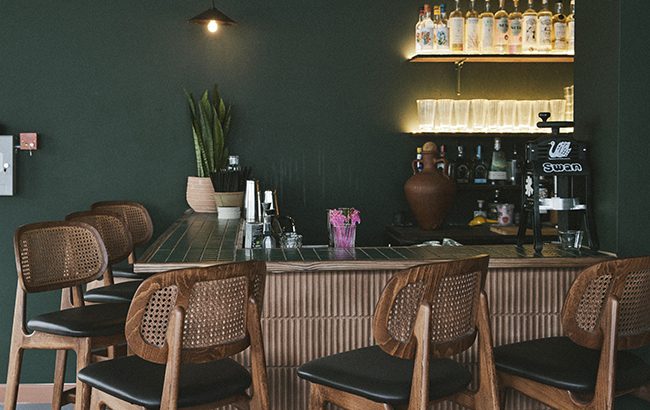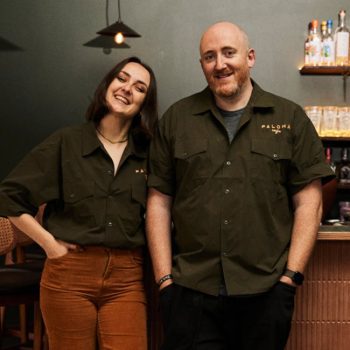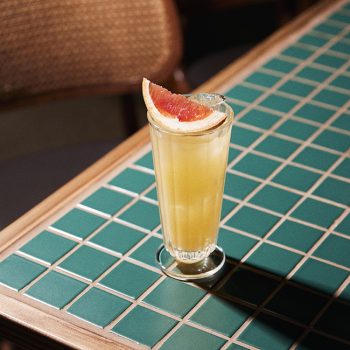How one angry neighbour shuttered London’s Paloma Café
By Lauren BowesPaloma Café, in London’s Shoreditch, has closed after just over a year of operation, following repeated complaints from a neighbour.

Owners Nate Brown and Hebe Richardson originally opened the bar in October 2023, but after its fifth weekend, the bar was shuttered for three months due to a flood.
Since its reopening in February this year, the bar has been subject to persistent complaints from a neighbour. Many of us – especially Londoners – know the pain of a noisy neighbour, but Brown is quick to explain that Paloma Café was anything but. “We weren’t operating late into the night. There was no past-midnight activity. There was no outside seating. There wasn’t ever pumping music or DJs.

“There are residents directly above the bar, and they had nothing but good things to say about us.”
The complaints were made by a neighbour close to the bar, but not above it. “They would come down and shout at the staff, in front of guests,” explains Brown. “It was all very aggressive.”
As well as being aggressive with the staff, the neighbour began filming the bar 24/7 in an attempt to catch the team breaking licensing rules.
Paloma Café’s licence forbids the bar from ‘vertical drinking’, a term that simply means allowing guests to stand up with their drinks. Brown alleges that the complainant would record guests standing up inside the bar – for instance to take off their coat or to go to the bathroom – and send the footage to the council to try to get the bar stripped of its licence.
Other licensing rules included only allowing five people outside the bar at one time, and for the door to be closed. The neighbour would allegedly attempt to find incriminating footage of the bar breaking these rules – for instance, if passersby interacted with people outside the bar, taking the total above five, or sending screenshots of the door open as guests entered or exited the premises.
These complaints were sent to the council on a daily basis. “Because the onus is on the licensee, we would have to make a case and defend ourselves,” explains Brown. “We’d have to send in a CCTV report to say: look, these people just got up and left. They stood for two minutes to put their coats on.”
As well as causing a huge amount of work for Brown and Richardson, the neighbour’s behaviour was unsettling for the team, who became nervous working late or getting changed with the venue being constantly filmed.
“We’ve always had quite a female-heavy team,” explains Brown. “It’s always been kind of our thing and something we were proud of. Our demographic was just under 90% female, so we felt we were doing a good job and creating a safe space.”
Attempts to negotiate with the neighbour fell flat. “There was just nothing we could do. It wasn’t an argument based on logic; it was an argument based on emotion, and you can’t win that. There’s no placating that.”

Time’s up
In the end, Brown and Richardson decided to give back the licence before it was revoked, making it one of many London bars that have called it quits in the final half of this year, including fellow Shoreditch bar TT.
The situation had turned Paloma Café into a very different operation than they’d envisioned. “We had three signature moments in mind when we designed the bar,” Brown continues. These ‘signature moments’ were agave-forward cocktails, live music, and a feel-good space. “But we couldn’t execute number two or three, because someone would come down and shout at us.
“We found ourselves, for the past three or four months, not turning the music up, not setting the tone, but telling everyone to calm down. People get up and dance and you have to tell them to sit down.
“It was completely incongruent with what we wanted to do.”
While Brown concedes that the licensing team were on Paloma’s side as much as they could be, he thinks something needs to be done to level the playing field: “To be honest, the licence is not really fit for purpose. It’s unfairly weighted against the licensee. Licensing and planning – which are two separate things, but they overlap – are massively outdated. They don’t really understand cocktail culture and bars.”
He points to a pub 20 yards from Paloma Café that could have 50 people spilling onto the street six days a week without issue. “Pubs have got their own problems – I’m not saying they’ve got it good – but it’s just an example of how licensing is not fit for purpose.”
Paloma Café had its last service on 13 December, with the team now figuring out what’s next. Richardson advises drinks brands on social media through her business, Drinks With Hebe, while Brown has set up a consultancy firm called Source Material and hopes to use his experience to help on-trade businesses navigate the problems he’s faced.
“I wish I had someone like me, weirdly, to help me through these things, because it’s very, very difficult,” explains Brown. “HMRC is not on your side. Licensing is not on your side. No government is ever on your side. Landlords are pretty much not on your side. Staffing is hugely difficult.”
But, for now, the two are taking stock and remembering the good times. “People have been sharing their stories about what the space had done for them or meant for them,” says Richardson. “There were some people who got engaged through Paloma and are getting married this year. It’s such a lovely thing to have been part of their story. And it’s nice we got to close a little bit on our terms and have that final evening where those people could come down. It was nice to have that final moment.”
Brown adds: “Alright, it’s come to an end. But while it was open, we did good.”
Related news
Welsh Budget ‘disastrous’ for on-trade
